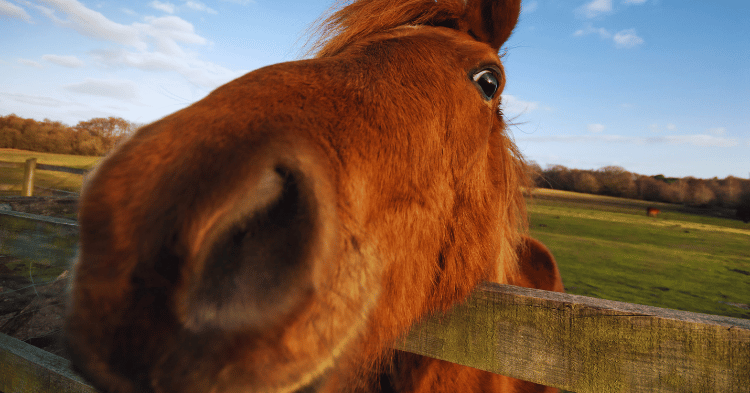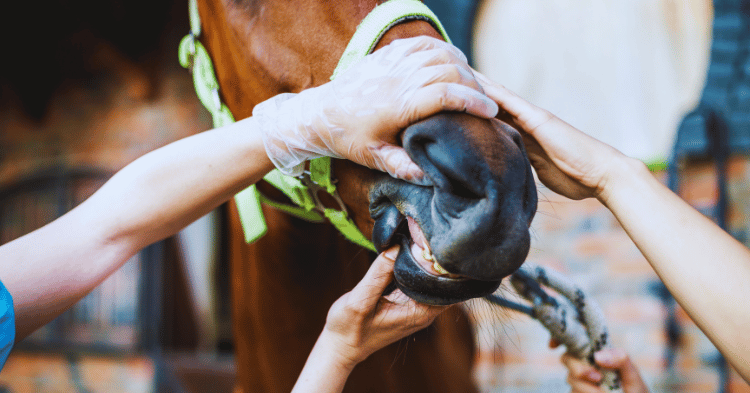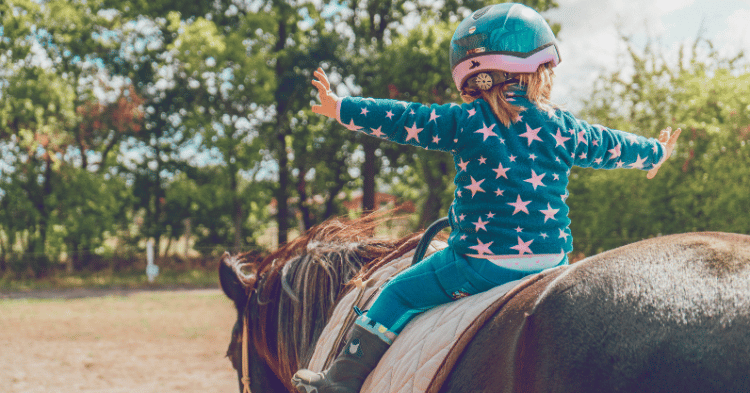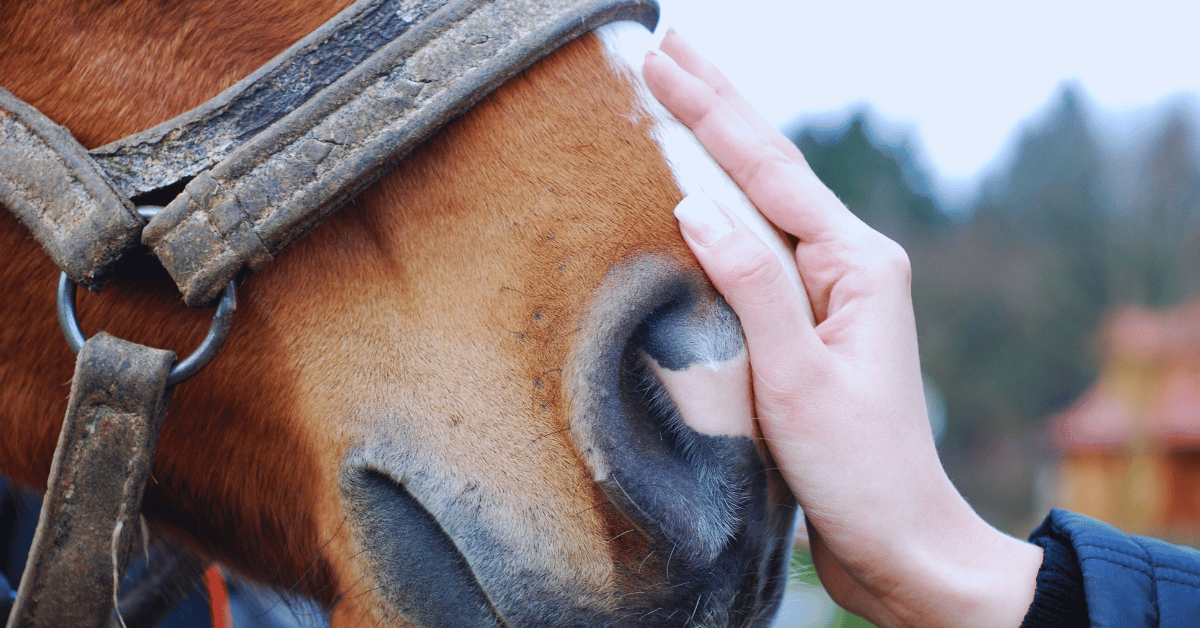Have you ever wondered, do horses like humans, or are they merely tolerating us? The truth is, horses are social animals capable of forming deep bonds with their human companions. Their interactions with us go far beyond simple obedience—they can show affection, recognize familiar faces, and even respond to our emotions.
But it’s not automatic. Building a genuine connection with a horse takes time, trust, and consistency. Horses communicate through subtle cues—ears, eyes, and body language—and understanding these signs is key to creating a meaningful relationship. When treated with respect and kindness, many horses demonstrate loyalty and a willingness to please, showcasing their capacity for forming genuine attachments.
Whether it’s the nicker of greeting or the gentle nudge of a curious nose, the bond between horse and human is a special one, rooted in mutual respect and understanding. It’s a relationship that, when nurtured, can be truly transformative.
Signs of a Happy Horse

Understanding the signs of a happy horse is crucial for building a strong bond between humans and horses. Here are key indicators, social behaviors, and work willingness that show your horse is in a good emotional state.
Indicators of Happiness
Horses express their joy through various behaviors and interactions with humans. Here are some common indicators:
- Affectionate Behaviors: Enjoying grooming, allowing their feet to be picked up, and showing affection through nuzzling or “kisses”.
- Relaxed Posture: Horses may put their head over a human’s shoulder in a relaxed manner when they feel comfortable and trust the person.
- Horsey Hugs: Horses sometimes express their fondness by allowing or giving “horsey hugs,” which are similar to the affectionate behaviors of humans.
Social Behaviors
Horses are social animals that seek interaction not only with other horses but with humans as well. They can recognize and react to human emotional states.
- Emotional Recognition: Horses can distinguish human emotions by observing body movements, tone of voice, and physical touch.
- Proximity-Seeking: They display proximity-seeking behaviors, often looking to their human caregivers as a “safe haven” when faced with new environments or objects.
- Building Bonds: Over time, horses form strong emotional connections and show attachment behaviors, which are essential for mutual trust and companionship (National Center for Biotechnology Information).
Work Willingness
A horse that is happy and willing to work shows it through their behavior during different activities and interactions.
- Experiment Findings: A UK experiment by Carrie Ijichi and colleagues in October 2016 assessed the impact of horse owners, who provide primary “human attachment,” on horses’ behavior and stress responses during handling tests. This study highlighted the significance of the owner-horse bond compared to competent handling in influencing horse behavior.
- Enthusiastic Participation: Horses that are eager to engage in work or activities, show signs of happiness and good mental health. They may demonstrate willingness by responding promptly to commands and showing enthusiasm for tasks.
These behaviors and indicators provide insight into the emotional well-being of horses and help horse owners better understand their equine companions. For more insights, explore related topics like do horses like to be ridden and do horses sleep standing up.
Recognizing Pain in Horses

Understanding how to recognize pain in horses is crucial for their well-being. Identifying pain early can prevent further harm and ensure timely medical intervention.
Signs of Discomfort
Horses can exhibit various signs of discomfort, indicating they may be in pain. Being attuned to these signals is essential for horse owners.
- Lameness: An obvious sign, where the horse may favor a limb.
- Behavioral Changes: Agitation or resistance to usual activities.
- Decreased Appetite: Less interest in food.
- Changes in Posture: Avoiding certain positions.
- Restlessness or Lethargy: Unusual inactivity or too much movement.
- Excessive Sweating: Sweating without exertion.
Behavioral Changes
Behavioral changes are common indicators that something might be wrong.
- Standing Apart: Isolating from the group.
- Not Wanting to Interact: Showing less social behavior.
- Loss of Appetite: Eating less or not at all.
- Guarding Behaviors: Kicking, biting, or showing aggression to protect painful areas.
Horses experiencing stress may also display other specific behaviors:
| Behavioral Signs | Indicators |
|---|---|
| Ears | Forward-pointing |
| Eyes | Wide-open or fixed |
| Nostrils | Widened |
| Stance | Stiff stance or weight shifted to the front |
| Tail | Raised |
| Other Actions | Blowing out through the nose, defecating, licking, chewing (The Horse) |
Physical Symptoms
Physical symptoms provide clear evidence of pain or distress in horses.
- Fixed Posture: Standing still for prolonged periods.
- Shift in Weight: Weight transferred to the front.
- Neck Position: Horizontal and low.
- Ear and Eye Movements: Unmoving ears and eyes.
- Indifference to Surroundings: Lack of interest in the environment.
Recognizing and understanding these signs can greatly enhance the human-horse interaction, fostering a trustworthy bond. Furthermore, protecting horses from stressors and minimizing painful experiences contributes to a positive human-equine relationship.
Horses express discomfort or dislike through various body language, such as tail swishing, head shaking, gaping mouths, and yanking the bit. Observing these behaviors and responding appropriately can prevent accidents and improve the overall relationship.
For more details on horse behavior and care, explore our articles on can horse see color, do horses sleep on their side, and do horses know their names.
Human-Horse Interaction

Equine Perception of Humans
Horses have a remarkable ability to recognize human emotional states through various cues such as body movements, tone of voice, and physical touch. Studies have shown that while horses can distinguish between different human emotions, the extent to which they empathize with these emotions remains unclear. Understanding how a horse perceives human emotions is crucial for building a strong bond. For more insights on this topic, you can explore how horses know their names.
Human Emotional Cues
Horses can read human emotions through several indicators, including body odors, posture, and attentiveness. These subtle behavioral signals can greatly influence a horse’s interpretation of human behavior. Paying close attention to how your horse responds to your emotions can provide valuable insights into how they prefer to be interacted with. This can help in establishing a more harmonious relationship.
Horses are particularly adept at perceiving human emotions through olfactory cues. Research indicates that they can differentiate between fear and happiness in human body odors and respond accordingly. This ability highlights the importance of maintaining a calm and confident demeanor around horses, as they are highly sensitive to emotional states. For more on how horses read human behaviors, you might find it interesting to read about whether horses like to be ridden.
Effect of Human Odors
Olfactory cues play a significant role in how horses perceive human emotions. Horses have been shown to respond differently to fear and happiness based on human body odors (NCBI). This suggests that not only can they smell human emotions, but they also react to them. Therefore, being aware of your emotional state and how it might be conveyed through your scent can help in better managing your interactions with horses.
To ensure a positive relationship with your horse, consider incorporating practices that promote comfort and trust. This involves recognizing signs of discomfort in your horse and understanding the importance of affectionate behaviors in building a bond. Additionally, being mindful of how your emotional and physical cues are interpreted can lead to a more fulfilling human-horse interaction.
By understanding equine perception, human emotional cues, and the effect of human odors, you can create a stronger and more positive bond with your horse. These insights can help answer the question, do horses like humans, and guide you in nurturing a healthier relationship with your equine friend.
Building Bonds with Horses
Affectionate Behaviors
Horses exhibit a variety of affectionate behaviors that show their fondness towards humans. Recognizing these behaviors can help deepen the bond between horse and caregiver:
- Nickering a greeting: Horses often make a soft whinnying sound when they see someone they like (source).
- Head butting and nuzzling: These gentle gestures are common signs of friendship and trust.
- Ear perks: Horses perk up their ears to show interest and affection.
- Seeking interaction: Even while eating, some horses will come over to interact with their favorite humans.
- Horsey hugs and kisses: Similar to humans, some horses will nuzzle or rest their head on your shoulder.
Interacting with Horses
Building a bond with a horse requires time, patience, and understanding. Here are some effective ways to interact with horses to strengthen the bond:
- Grooming: Horses love being groomed. Brushing and caring for their coat and feet is an excellent way to interact and build trust.
- Routine care: Actively participating in feeding, cleaning, and health check-ups helps establish a consistent presence.
- Positive reinforcement: Providing treats and gentle strokes reinforces good behaviors and strengthens the relationship.
Establishing Trust
Trust is fundamental in the human-horse relationship. Horses, much like humans, appreciate calmness, consistency, and respect:
- Understand individual personalities: Some horses enjoy a lot of attention, while others prefer their space. Tailor your approach based on the horse’s preferences.
- Be calm and patient: Loud, abrupt movements can scare horses. Staying calm and moving gently helps in gaining their trust.
- Leading the mini-herd: Establish yourself as a leader by demonstrating leadership skills through horse behavior. Use consistent and sometimes firm handling.
Building a strong bond with a horse involves understanding their affectionate behaviors, engaging in meaningful interactions, and establishing a foundation of trust. For more details on how to maintain this relationship, check out our guides on human-horse interaction and horse care tips.

